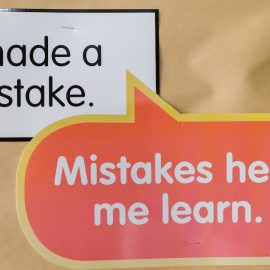

This article is an excerpt from the Shortform summary of "The Challenger Sale" by Matthew Dixon and Brent Adamson. Shortform has the world's best summaries of books you should be reading.
Like this article? Sign up for a free trial here .
What is a sales coaching model? How can you use a coaching model to be a better sales manager?
A sales coaching model defines the relationship and interactions between a sales manager and a rep. A great sales coaching model is an effective way to help reps be successful in their sales.
All managers should have a sales coaching model. The Challenger Sale offers ideas on coaching models and how to implement them.
Sales Coaching Model Defined
Sales coaching is an ongoing series of interactions between a frontline sales manager and a rep, designed to diagnose, correct, and reinforce selling skills and behaviors.
Coaching differs from training, which is for sharing knowledge. Coaching is for acting on knowledge. Coaching is ongoing—it’s not a one-time event or training series. It involves specific diagnosis and it’s customized and behavioral. In order to have a successful team, you’ll need a good sales coaching model.
Coaching’s value lies in being tailored to the individual and applied as needed. It’s formal rather than informal, meaning it’s highly structured and regular. It also differs from managing: managers tell and do; coaches ask and guide.
An Effective Sales Coaching Model Is Good Business
Research shows that effective coaching can significantly boost the performance of average reps. You can use this research to think about your own sales coaching model.
Specific research findings include:
- Improved coaching of weak performers results in only nominal performance improvement. If someone is a bad fit for the job, better coaching won’t fix the problem.
- Improved coaching of star sales reps also is likely to have little performance impact. However, quality coaching improves their retention.
- Improved coaching can substantially boost the performance of average reps. With quality coaching, median performers could improve as much as 19%. Improving coaching effectiveness from weak to strong would result in a performance gain of 6 to 8% for core reps.
This means effective coaching has the potential to greatly improve performance in a complex sales environment. Coaching can mean the difference between hitting or missing sales goals for the majority of your reps. The key is to focus the bulk of coaching efforts on the core performers rather than the lowest or highest performers.
Besides boosting sales performance, coaching is a big factor in employee retention and discretionary or extra effort. Good coaches make people want to stay; bad coaches (and bad managers) are demoralizing and drive people away. This applies regardless of the employee’s performance level.
Guidelines for Coaches
To coach effectively, managers need a standard to coach to. You should stick to sales coaching techniques that you know work.
One company created a coaching guide or cheat sheet for managers that it integrated into the sales process. It provided questions for managers/coaches to ask reps at each stage of the sales process to help them achieve the objectives of that stage.
Typically, managers focus on outcomes rather than behaviors in coaching conversations.
For instance, a manager might say to a rep, “Your conversion rate is down. What’s the problem?” This is “spreadsheet coaching”—it focuses on business outcomes, not behavior. In addition, it’s a one-size-fits-all critique.
In contrast, good coaching focuses on behaviors (what the rep is doing), not outcomes. For instance, in the pre-call planning stage, a coach might ask the rep: “What business problem are you planning to focus on with this customer? How new will this insight be to him? Why hasn’t he already figured it out?”
Appendix A provides an excerpt of the authors’ coaching guide, including sales coaching techniques, for Challenger selling. The full version is available as a free download here.
The PAUSE Coaching Model
When you’re looking at sales coaching techniques, consider the PAUSE coaching model. Here’s a model for coaching developed for CEB’s Manager Development Program. The components fit the acronym PAUSE.
P—Prepare for the coaching conversation: Review the customer account. Determine what stage of the sales process the rep is in and what behaviors are going to be important.
A—Affirm the relationship: If the rep isn’t receptive to feedback, the coaching will be wasted. Separate performance management from coaching to create a safe environment for the rep to listen.
U—Understand what behaviors are important: Managers need to understand what they’re seeing and know what behaviors to look for in observing their reps.
S—Specify behavior change: When you know what behaviors are needed and have an objective standard for judging them, you can provide objective feedback.
E—Embed new behaviors: Create an action plan for the rep to apply the feedback.
Using the PAUSE coaching model helps keep it objective and provides continuity from one coaching conversation to the next.
Sales coaching models are in important part of having an effective relationship between a manager and a rep. Sales coaching models can help managers stay organized and consistent, and can help reps find support when they need it.

———End of Preview———
Like what you just read? Read the rest of the world's best summary of Matthew Dixon and Brent Adamson's "The Challenger Sale" at Shortform .
Here's what you'll find in our full The Challenger Sale summary :
- Why the best salespeople take control of the sale and challenge the customer's thinking
- How to package your company with a key insight to spark an "a-ha" moment
- How to get the organizational support you need to maintain your sales edge






